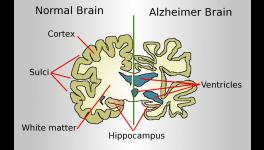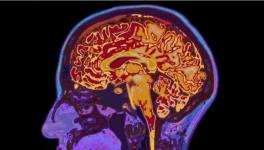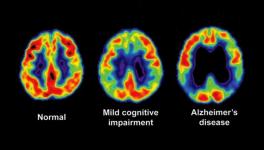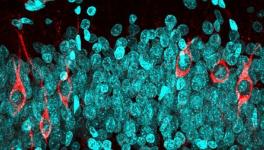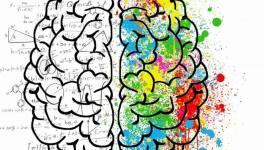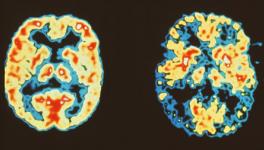Mysterious Childhood Brain Disorder in Africa May have Similarities with Alzheimer’s

Image Courtesy: Science Magazine
Since 1960s, a mysterious childhood disease has made thousands of East-African children suffer. Nodding syndrome is what the disease is commonly called where children develop epilepsy-like seizures, in which they lose control on their heads, and it sways; over time, they develop cognitive problems, and the victims ultimately die. Researchers propose that the causes of the nodding syndrome could be malnutrition or bacterial and viral infections, but till now, a clear link of any of these factors to the disease could not have been established.
A recent study conducted on the brains of the children who have died of the disease suggests that the disease has traits that are key to many brain diseases developed in the old age—like the Alzheimer’s disease and Parkinson’s disease. The victim’s brains contain tangles of a protein called the Tau protein. The tangles of tau have also been confirmed to be present in Alzheimer’s disease.
The findings of this study have given rise to a controversy that revolves around the belief that tauopathy – neurodegenerative diseases that have pathological aggregation of tau protein – is not restricted to old-age brain disorders only. Moreover, seeing the disease as a neurodegenerative condition would lead to treating the victims as having cognitive disabilities; whereas there have been instances where children with this disease could be brought back to schools with good care and nutrition, and were without any cognitive disability.
Michael Pollanen of University of Toronto, who is the lead scientist of the study, declares that nodding syndrome is a tauopathy. "Our hypothesis is that nodding syndrome is a neurodegenerative disease, like Alzheimer's," Pollanen says.
Some researchers working on the same disease are skeptical about the findings, nevertheless many among them are also excited about it. Childhood formation of tauopathy is an extremely rare phenomenon. The new findings might open up new paradigms of the pathological conditions of other old-age tauopathies like that of Alzheimer’s.
Nodding Syndrome was first reported in Tanzania, and it got spread to what is now South Sudan in the 1990s, and then to Northern Uganda only after 1998. Uganda reported some 3,000 cases of this disease, but from 2014, no new cases have been reported.
The current study published in Acta Neuropathologica was done on the brains of five children from Uganda who died while in the camps for internally displaced people.
US and Ugandan researchers obtained some 12 brains between 2014 and 2017 from the deceased children. As reported by Science, the US investigations were never published for unknown reasons, and the brain samples were returned to Uganda. Pollanen’s group then studied all the 12 brain samples. In the current paper, they have reported the results of five of the 12 brain samples. The remaining would be analysed soon, and published.
It has been long stated that nodding syndrome is caused by a class of worm endemic to the region. But there were no direct proof that the worm can penetrate the brain and cause the disease. It was only last year when a study proposed that a protein of the worm causes the production of some kinds of antibodies which can travel up to the brain and cause an auto- immune response that eventually initiates the disease.
Some scientists are apprehensive of declaring nodding syndrome a neurodegenerative disease, as this can hamper the efforts where the disease could be controlled by proper nutrition and care, and children could go back to school without any cognitive deficits.
Nodding syndrome still remains a mystery with the new findings only shedding light on another aspect of it. But many researchers hope that the new findings could help understand not only the disease, but also other neurodegenerative diseases like Alzheimer’s and Parkinson’s disease in better ways.
Get the latest reports & analysis with people's perspective on Protests, movements & deep analytical videos, discussions of the current affairs in your Telegram app. Subscribe to NewsClick's Telegram channel & get Real-Time updates on stories, as they get published on our website.









